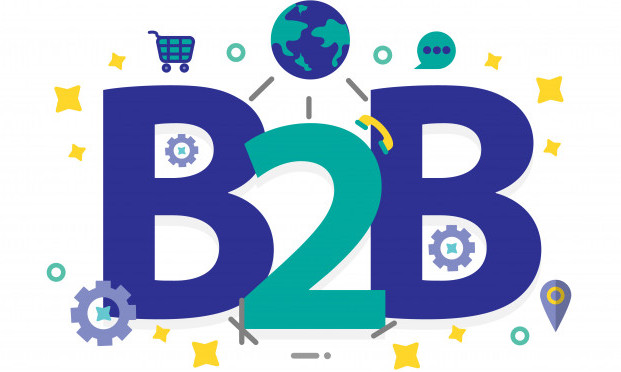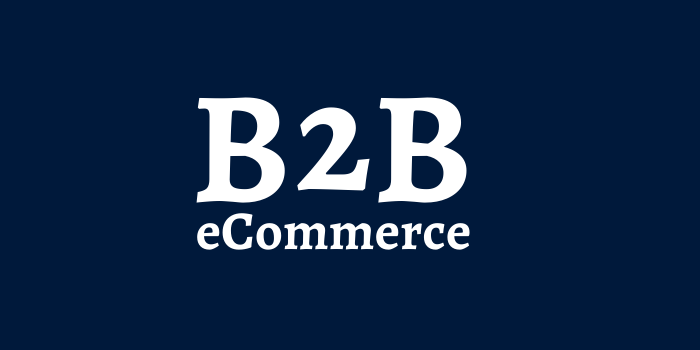B2B eCommerce is internet-based commerce, in other words, the act of selling goods and services over the internet exclusively to businesses.
While it may not be apparent to many, there are many differences between a B2B eCommerce store and a typical B2C eCommerce website many of us shop on.
The key difference between B2B and B2C is “who” you are selling to, and B2B tends to be more complex in that regard. That’s because businesses are complex by nature: they all have unique needs, decision-making processes, buying cycles, and even brand loyalties. B2B eCommerce platforms must accommodate these requirements B2B customers have.
Depending on what your product line consists of, your business needs and your budget, there can be many B2B-specific features you may want. Here are some of the more standard features B2B eCommerce platforms must have.
- Mobile front-end and back-end interfaces that allow customers and back-end agents to keep tabs of their accounts on mobile devices.
- Role-based product catalogues, web catalogues, tiered and custom pricing structures.
- Order management features such as modifications and payment channels.
- Inventory management features such as tracking, procurement and order fulfilment.
- Workflows for the buyer, seller processes, and custom checkout experiences.
- Integration with other systems such as ERP (Enterprise Resource Planning), product information management and CRM systems to centralize product and customer data.
Benefits of Using B2B eCommerce Platforms

While B2B and B2B eCommerce platforms may look similar on the surface, there are many important benefits that B2B eCommerce platforms give you. One is customization.
Many B2B eCommerce platforms are designed for demanding requirements of their clients, such as supporting implementation in-house or in a headless fashion. However, that’s not all. A dedicated B2B eCommerce platform can bring many benefits to the table:
1. Reach a Wider Audience
While many B2B purchases are already done online, the share of offline purchases is still quite large. This means that there is a lot of room to grow for businesses that traditionally rely on word-of-mouth or limited themselves to local markets to find clientele.
Those with an eCommerce platform can benefit from upgrading to a B2B system, too. This can uncover different markets such as medium or large businesses with more complex purchasing processes.
2. Customized Pricing Structures
Merchants that target businesses demand flexible pricing structures that suit their clients. For example, a dynamic pricing engine in a B2B eCommerce system could set a cost-plus pricing method with the ‘plus’ part being set dynamically.
Another benefit for the B2B buyer is the ability to request a quote, or request for proposals and for the seller to approve or deny them. These are just some of the pricing features B2B eCommerce systems can have.
3. Customized Buying Experiences
When dealing with multiple corporations, divisions, subsidiaries, and business types as clients, offering custom experiences becomes a necessity.
For example, B2B customers may want to send the bill to one address and maintain their shipping location at another address. Product variations and product descriptions can be tailored to improve the personalized customer experience and boost conversion rates.
4. Reporting and Metrics
With its expanded segmentation and role-based features, B2B eCommerce software tends to excel in reporting features and customer behavior analytics. Using data from external sources such as ERP and CRM software, it’s possible to get greater insights into customer data.
How to Choose the Best B2B eCommerce Platform
There are many things that might impact your decision on a B2B eCommerce platform. Here are some of the features you should pay attention to. Use this list to decide if they are crucial to operations or are simply nice-to-haves:
- Open-source vs proprietary
- SaaS vs on-premise
- Mobile functionality
- Multiple sites and self-service portals
- Custom, tiered and dynamic pricing options
- Online quotes, negotiations and bargaining
- Multiple payment and shipping options
- Security features such as PCI
- Purchase, communication and activity history
- Workflows for cross-sells and upsells
- eCommerce search engine and page SEO visibility
- High level of scalability and add-ons
- Integration, add-ons, and plugins
- Reporting options
Conclusion
No matter what B2B eCommerce solution you choose, ultimately, your aim is to generate a positive return on investment. In doing so, the features of your chosen B2B eCommerce platform should carefully match your infrastructure, processes, and goals.
Just like any investment in the long-term success of your business, the best platform should be above all, a great fit for everyone who comes in contact with it: From your staff, suppliers, distributors, manufacturers, to perhaps most importantly, your customers.
